Saudi-led coalition intensifies airstrikes against Yemen after death of Saleh
The Saudi-led coalition has intensified its airstrikes against the Yemeni capital, Sana’a, and other areas following the killing of the former Yemeni president, Ali Abdullah Saleh.
The coalition’s warplanes conducted dozens of airstrikes on positions of the Houthi Ansarullah movement in Sana’a and other northern provinces early Wednesday despite calls for a humanitarian ceasefire in the country, Yemen’s al-Masirah television reported.
The coalition also bombed the presidential palace, Saleh’s residence and houses of his family members.
Local residents said loud explosions were heard in downtown Sana’a.
The airstrikes also targeted other Yemeni provinces, including Ta’izz, Hajjah and Sa’dah.
The assaults on Hajjah left a woman and a girl dead and injured 10 others in Mabyan District. The Saudi warplanes also fired more than 150 rockets and mortar shells at Razih and Shada’a districts in Sa’dah Province.
Elsewhere in the southwestern province of Ta’izz, four people were wounded following the bombardment of a fuel station in Mukha District.
Yemeni forces, on the other hand, targeted the positions of the Saudi-led mercenaries in Nihm District in Sana’a Province and Maton district in the northern province of Jawf.
Saleh was killed on Monday while attempting to escape Sana’a to Ma’arab Province. This came shortly after he broke ranks with the Houthi Ansarullah movement in favor of the Saudi-led military coalition, which has been pounding Yemen to reinstall its former Riyadh-allied government.
On Tuesday afternoon, tens of thousands of Yemenis staged a demonstration against the Saudi-led war against Yemen, calling for unity among all factions in the country.

The Houthi movement has been both running state affairs and defending the country against the Saudi aggression.
More than 12,000 people have been killed since the onset of Saudi Arabia’s military campaign in March 2015. Much of the Arabian Peninsula country’s infrastructure, including hospitals, schools and factories, has been reduced to rubble due to the war.
According to the UN, the country is experiencing “the worst humanitarian crisis on the planet.”
The new round of airstrikes came a day after Saleh’s son Ahmed Ali vowed to lead a campaign against the Ansarullah movement.
In a briefing to the Security Council, UN Special Envoy for Yemen Ismail Ould Cheikh Ahmed has urged all parties to exercise restraint.
According to Yemen’s Interior Ministry, Yemeni forces, backed by fighters from the popular Houthi movement, are in full control of all positions previously held by Saleh’s militias in Sana’a.
'Riyadh sought to use Saleh to save itself'
Omar Nashabi, editor of Al-Akhbar newspaper believes that Saudi Arabia in fact intended to use Saleh’s position to find a way out of the quagmire it is stuck in.
“The Saudis would like to find a way out of this situation. They thought perhaps the way out would be by actually engaging Ali Abdullah Saleh and getting him back in control of the capital Sana’a at least and pushing for a solution in a forced way. They thought they could turn the time and go back to the past where Ali Abdullah Saleh was always a player who used to know how to deal with the situations inside Yemen,” he told Press TV.
As it turned out, the Ansarullah movement succeeded in foiling the Saudi “conspiracy,” he noted, insisting that the need for unity in Yemen is now greater than ever before.
Nashabi warned of “the very tight” situation in Yemen and predicted that there will be further escalation on the part of the so-called Saudi-led coalition in the coming weeks.
He also emphasized that Saudi Arabia’s military aggression should stop as fast as possible, and that more interference in the internal affairs of Yemen will only complicate things further.
There needs to be an immediate ceasefire for the Yemenis to figure out their future, because if the Saudi aggression continues, there will not be a way forward to the negotiating table for a political settlement, he stated.
Also talking to Press TV, a professor at George Washington University, Nabil Mikhail, predicted that the killing of Saleh will “expand the regional scope” of Yemen’s conflict.
He warned of a possible involvement of Egypt in the conflict by moving closer to Saudi Arabia as well as efforts to get Russia to also play a role.
‘Ethnic cleansing’: Hamas blasts Israeli attacks on Gaza hospital amid intl. silence
Saudi delegation meets HTS leader at presidential palace in Damascus
Relentless Israeli ceasefire violations justify need for self-defense: Lebanese MP
Tel Aviv tells Damascus Israeli forces will remain in occupied territory: Report
Dec. 22: ‘Axis of Resistance’ operations against Israeli occupation
‘Abhorrent’: Oxfam says only 12 trucks delivered aid in North Gaza since Oct.
VIDEO | Leader receives religious eulogists on Hazrat Fatima birth anniv.
Pope Francis slams Israel’s ‘machine-gunning’ of Gaza children


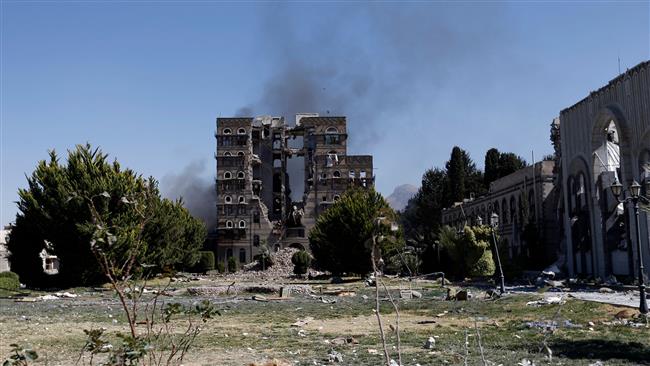
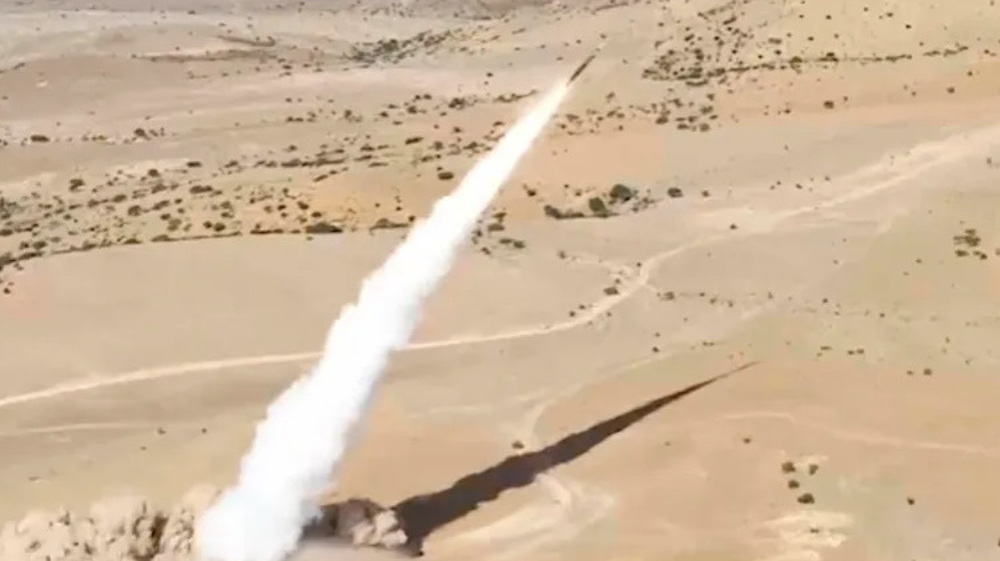
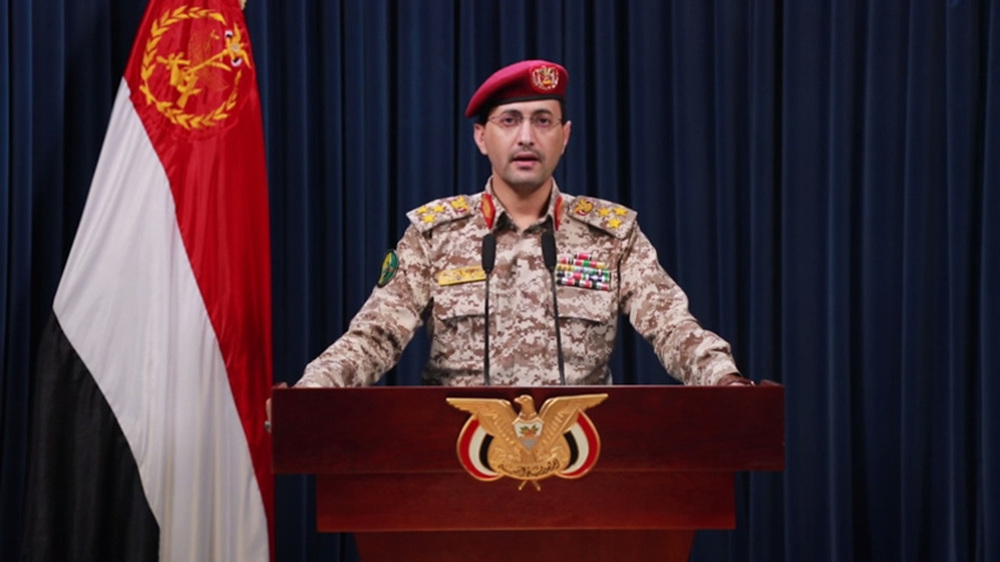




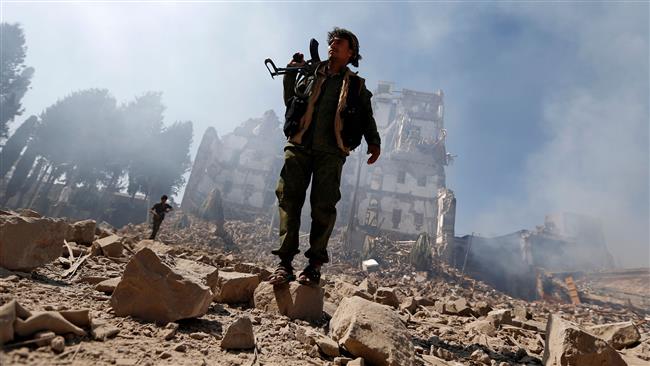
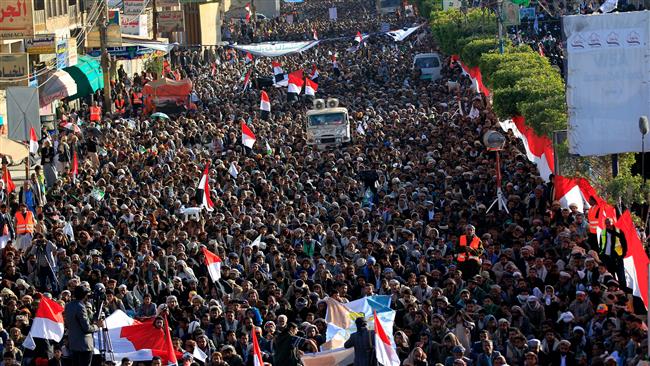

 This makes it easy to access the Press TV website
This makes it easy to access the Press TV website